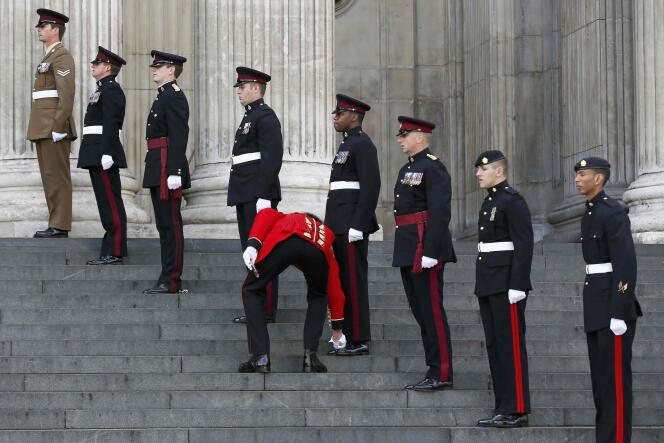This article was originally published on June 18, 2015.

Editorial of "Le Monde" After two hundred years, the time has come to take a fresh look at the meaning of Waterloo. Defeat does not come easily to a proud nation. On June 18th, 1815, France did not only lose thousands of its brave soldiers on the gory fields of Belgium. It lost an Emperor, whom the English then took into permanent exile on the desolate island of St Helena; it also lost its dream of hegemony.
This painful memory explains why President François Hollande, who so revels in anniversaries that he never misses a commemoration, found more important things to do today than to join officials of Perfidious Albion in the ceremonies marking the bicentenary of the battle that changed Europe. In French history, June 18th is remembered as the day General de Gaulle launched his appeal from London in 1940, calling his fellow countrymen to resist the German occupation, not as the anniversary of Napoleon's fall at the hands of the Duke of Wellington.
This does not mean we should give in to self-censorship. The bicentenary of the battle of Waterloo is actually pushing French historians and commentators to look at this crucial episode in a more balanced way. Defeat it was, but a glorious defeat : it took the whole of Europe to break the French army. Who remembers Wellington? It is Napoleon who is celebrated today, including in BBC series. Yet in France, the Napoleonic legend has lost much of its luster. The military genius, it turns out, was also a dictator. The image of the revolutionary, of the visionary of modern Europe is now tainted with the legacy of nepotism and slavery.
More importantly, Waterloo marked the beginning of an unprecedented era of peace, stability and development in Europe. For some historians, the 19th century truly started in 1815, just as the 20th century started in 1914. Waterloo marked the end of the political cycle of the French Revolution and the beginning of the industrial revolution in Britain. For the next century, no major European war would erupt. After the Congress of Vienna, European monarchs took to meet regularly to solve tensions and crises: a new system of collective security had emerged.
Some may argue that, had Napoleon continued to rule, industrial development would have started earlier in France, reactionary regimes would not have crushed progressive movements, France might have been spared two revolutions, in 1830 and 1848. But the most noble ideas of the French Revolution had spread, opening the way to modernization of European societies and a golden age for European science, arts and literature.
Another spectacular achievement of Waterloo, though, may have been missed: two centuries of Anglo-French peace. Never again have we been at war with each other, except on rugby fields. Inevitable skirmishes have happened, at Fashoda and elsewhere, but from Suez to Libya, for better or worse, the Entente Cordiale has prevailed. This is why, on this bicentenary, we feel entitled to call on our British allies to resist the familiar temptation of splendid isolation. The country which cornered Napoleon cannot succumb to Nigel Farage. Today, we solemnly say to our friends across the Channel: beware, Brexit could be your Waterloo! And to make sure the message is really heard, we have gone as far as to convey it in English. Messieurs les Anglais, don't let the sirens of a fake independence pull you away from the continent. Just as in 1815, your future is in Europe.